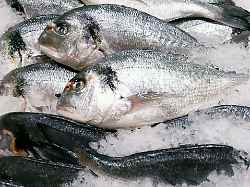Additives and misrepresentations
Federal Office: Fishing industry often cheats consumers
11/17/2022 4:52 p.m
Food fraud – a billion-dollar business for companies, risky for consumers. According to an official study, fish, crustacean and mollusc products are particularly frequently manipulated. Catching the perpetrators is difficult.
According to a study, food containing fish, crab or mollusks is often cheated on. The Federal Office for Consumer Protection and Food Safety (BVL) announced that expensive types would be replaced by cheaper ones. This could increase profits or obscure the geographic origin of illegally caught species. In the case of frozen products, the counterfeiters increase the weight and thus their profits by introducing water into the products, usually using water-binding food additives.
From January to May, the German authorities examined 443 samples from wholesalers and retailers in twelve federal states – mainly frozen products. According to the BVL, abnormalities were discovered in 72 samples (16 percent) – fraud, but also illegal additives or misleading information.
According to the Fish Information Center, people in Germany ate about 1.2 million tons of fish and seafood in 2020, 89 percent of which was imported. The BVL explained that because of the widespread trade routes and the great variety of products, they are susceptible to fraudulent practices. “Especially when importing processed products, in many cases it is no longer possible to identify the animal species without a doubt based on external characteristics.”
